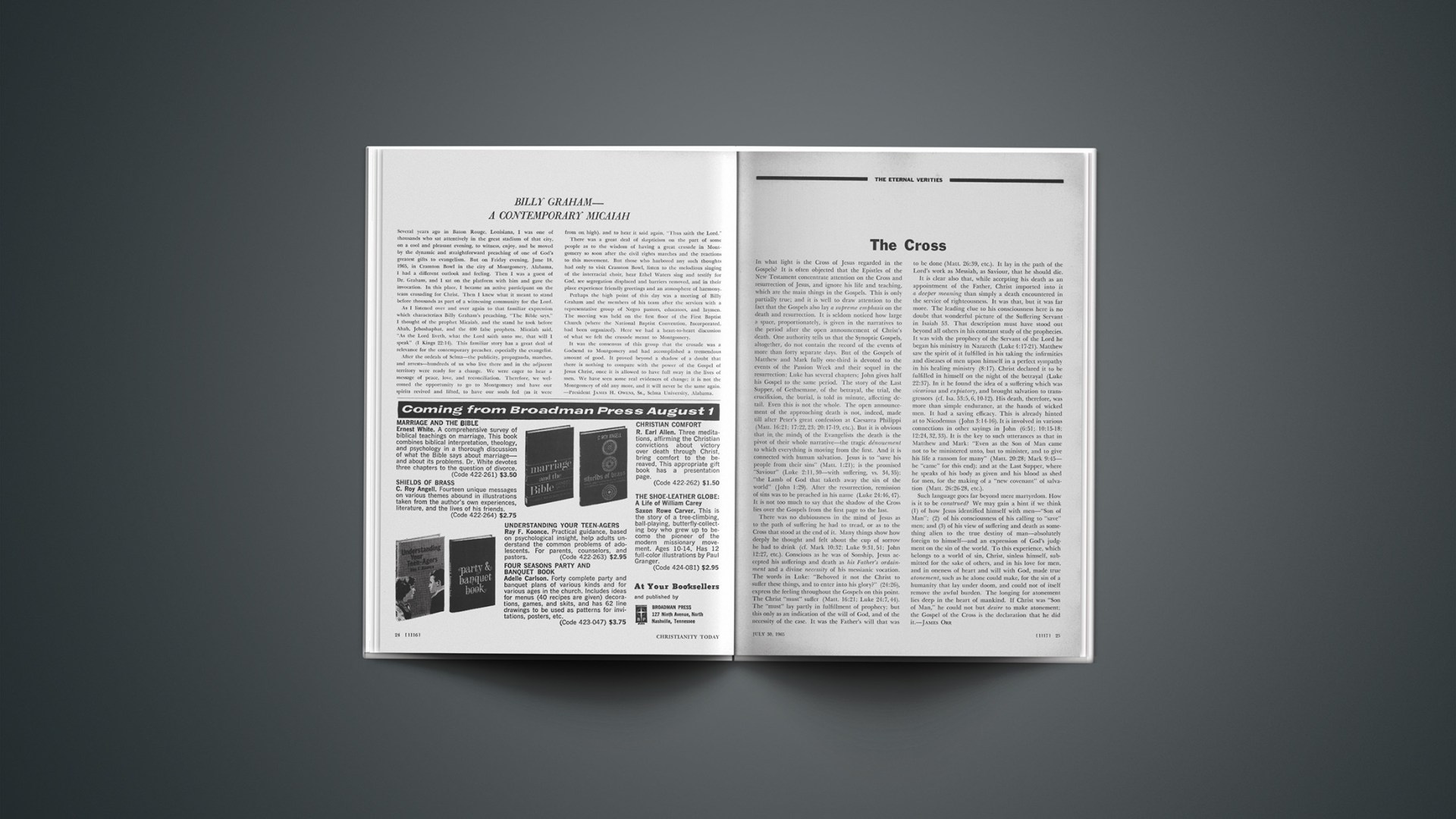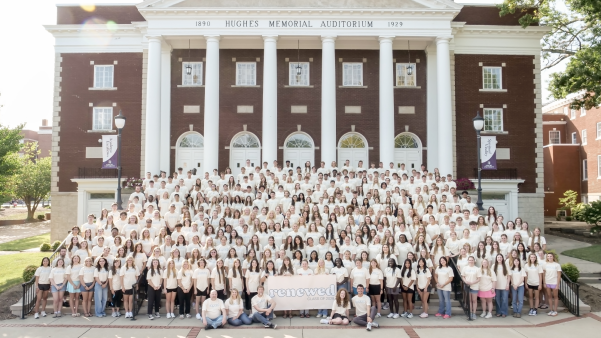Several years ago in Baton Rouge, Louisiana, I was one of thousands who sat attentively in the great stadium of that city, on a cool and pleasant evening, to witness, enjoy, and be moved by the dynamic and straightforward preaching of one of God’s greatest gifts to evangelism. But on Friday evening, June 18, 1965, in Cramton Bowl in the city of Montgomery, Alabama, I had a different outlook and feeling. Then I was a guest of Dr. Graham, and I sat on the platform with him and gave the invocation. In this place, I became an active participant on the team crusading for Christ. Then I knew what it meant to stand before thousands as part of a witnessing community for the Lord.
As I listened over and over again to that familiar expression which characterizes Billy Graham’s preaching, “The Bible says,” I thought of the prophet Micaiah, and the stand he took before Ahab, Jehoshaphat, and the 400 false prophets. Micaiah said, “As the Lord liveth, what the Lord saith unto me, that will I speak” (1 Kings 22:14). This familiar story has a great deal of relevance for the contemporary preacher, especially the evangelist.
After the ordeals of Selma—the publicity, propaganda, marches, and arrests—hundreds of us who live there and in the adjacent territory were ready for a change. We were eager to hear a message of peace, love, and reconciliation. Therefore, we welcomed the opportunity to go to Montgomery and have our spirits revived and lifted, to have our souls fed (as it were from on high), and to hear it said again, “Thus saith the Lord.”
There was a great deal of skepticism on the part of some people as to the wisdom of having a great crusade in Montgomery so soon after the civil rights marches and the reactions to this movement. But those who harbored any such thoughts had only to visit Cramton Bowl, listen to the melodious singing of the interracial choir, hear Ethel Waters sing and testify for God, see segregation displaced and barriers removed, and in their place experience friendly greetings and an atmosphere of harmony.
Perhaps the high point of this day was a meeting of Billy Graham and the members of his team after the services with a representative group of Negro pastors, educators, and laymen. The meeting was held on the first floor of the First Baptist Church (where the National Baptist Convention, Incorporated, had been organized). Here we had a heart-to-heart discussion of what we felt the crusade meant to Montgomery.
It was the consensus of this group that the crusade was a Godsend to Montgomery and had accomplished a tremendous amount of good. It proved beyond a shadow of a doubt that there is nothing to compare with the power of the Gospel of Jesus Christ, once it is allowed to have full sway in the lives of men. We have seen some real evidences of change; it is not the Montgomery of old any more, and it will never be the same again.
—President JAMES H. OWENS, SR., Selma University, Alabama.










